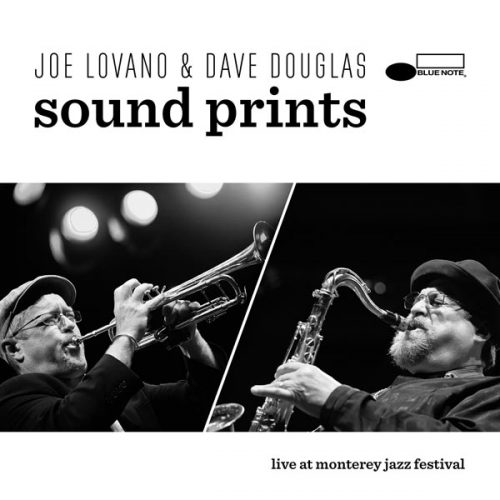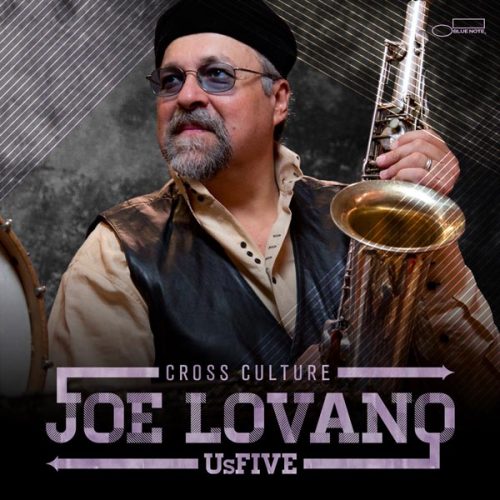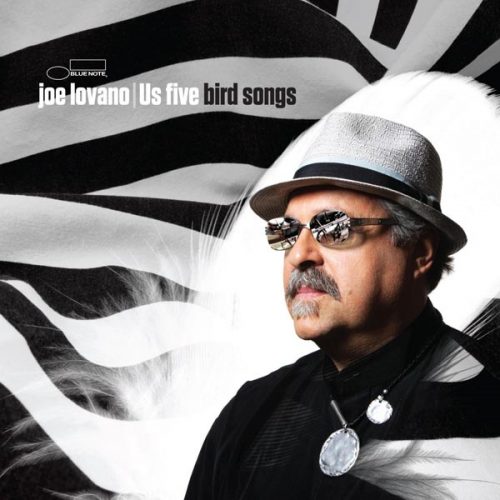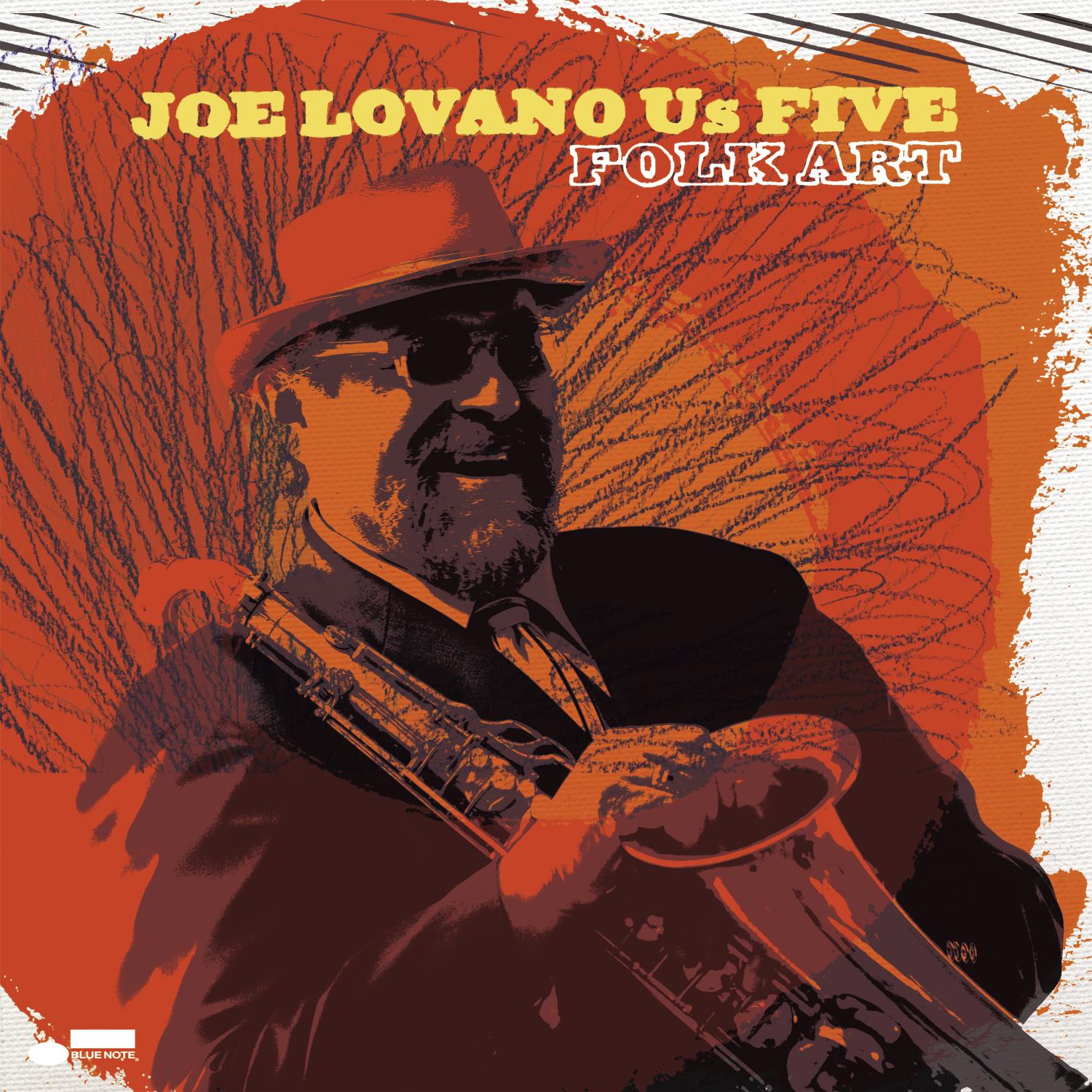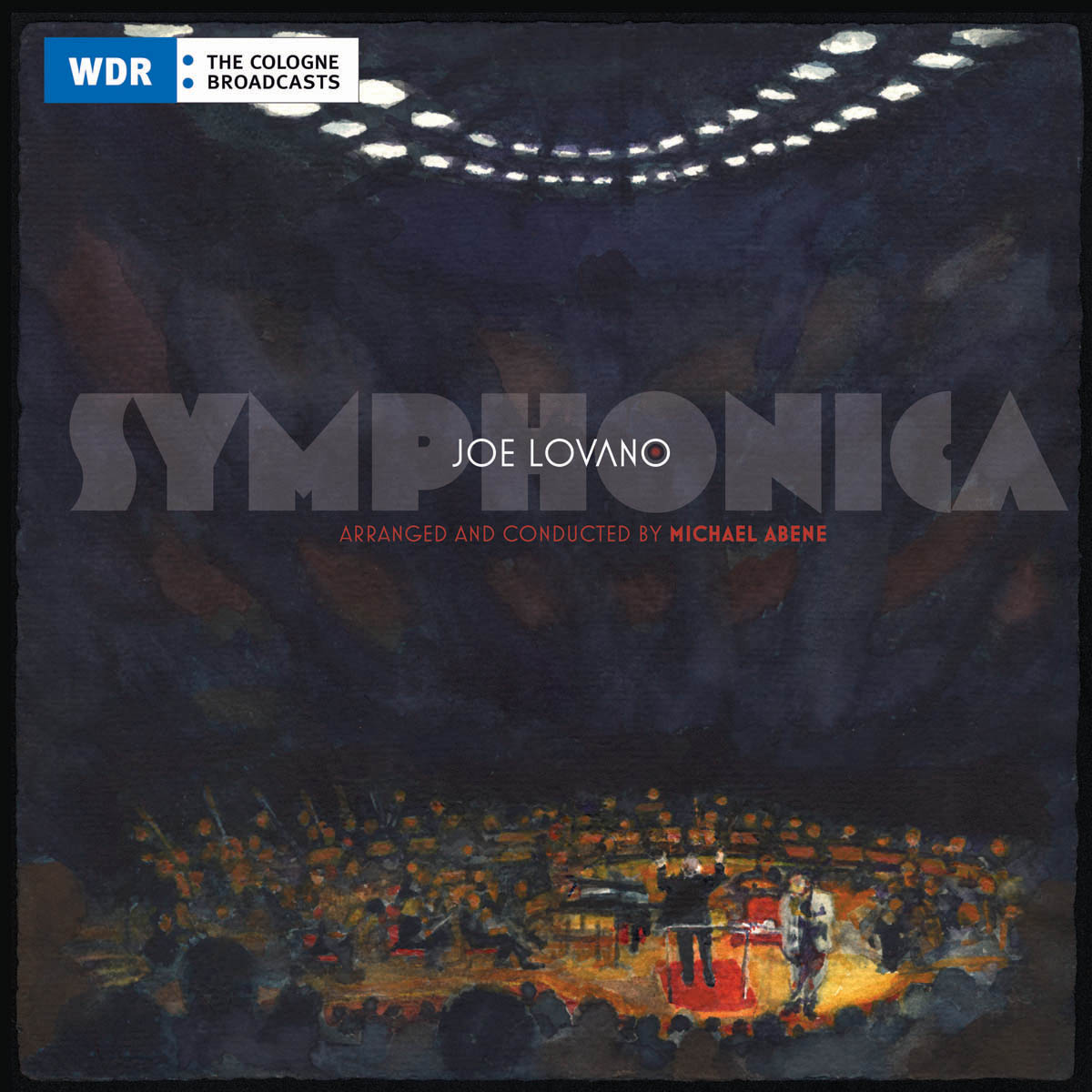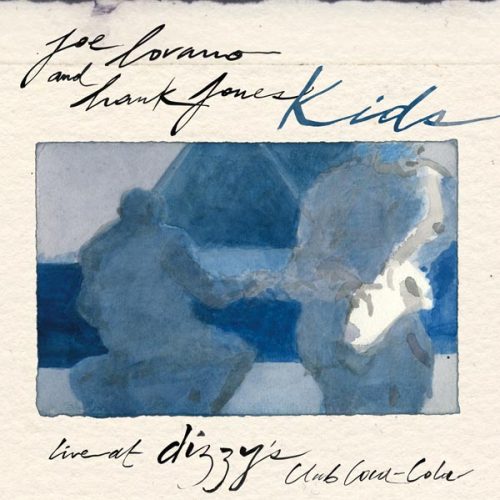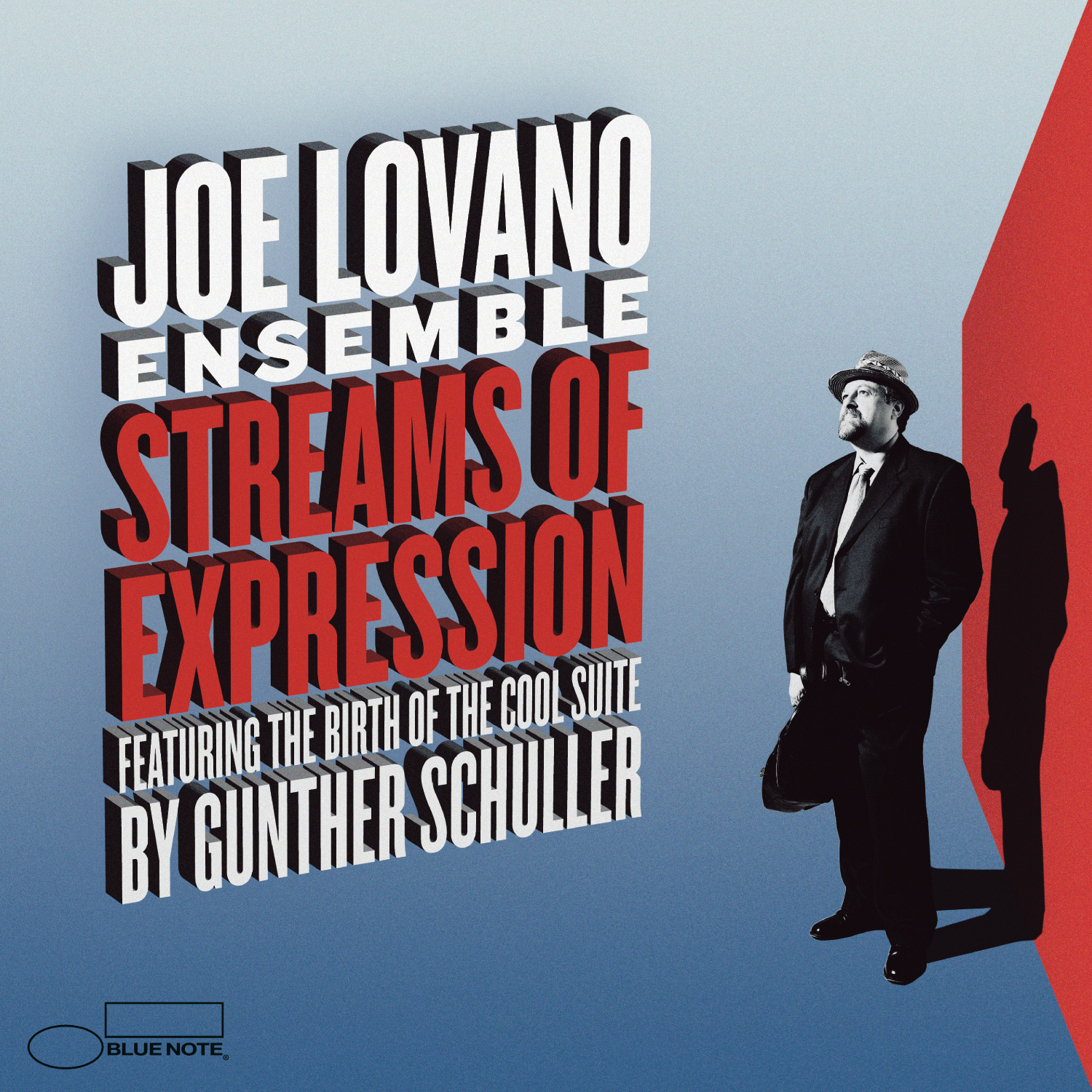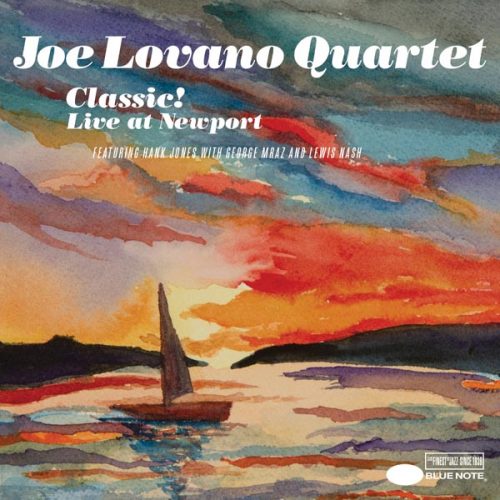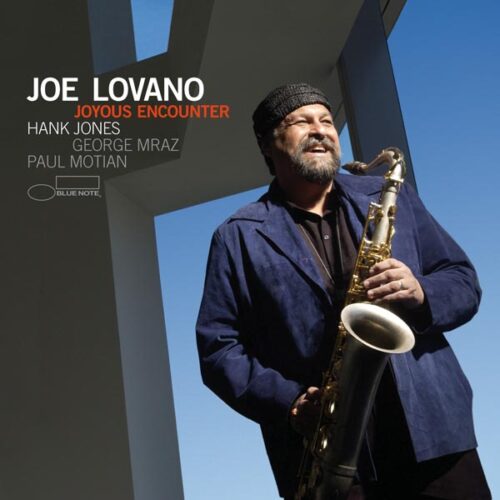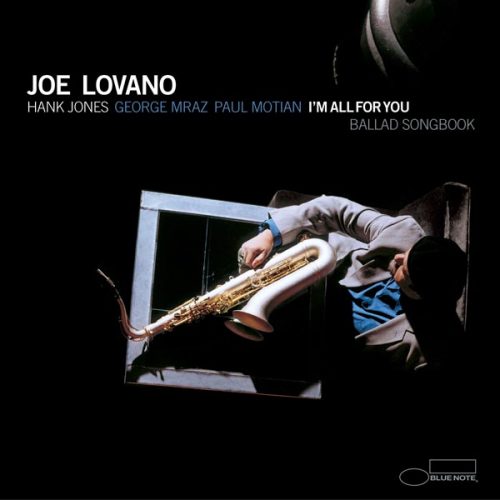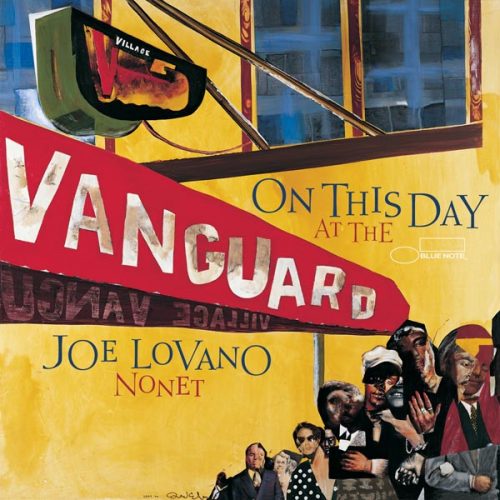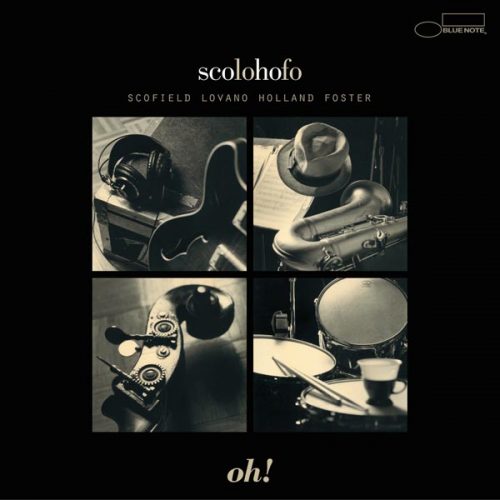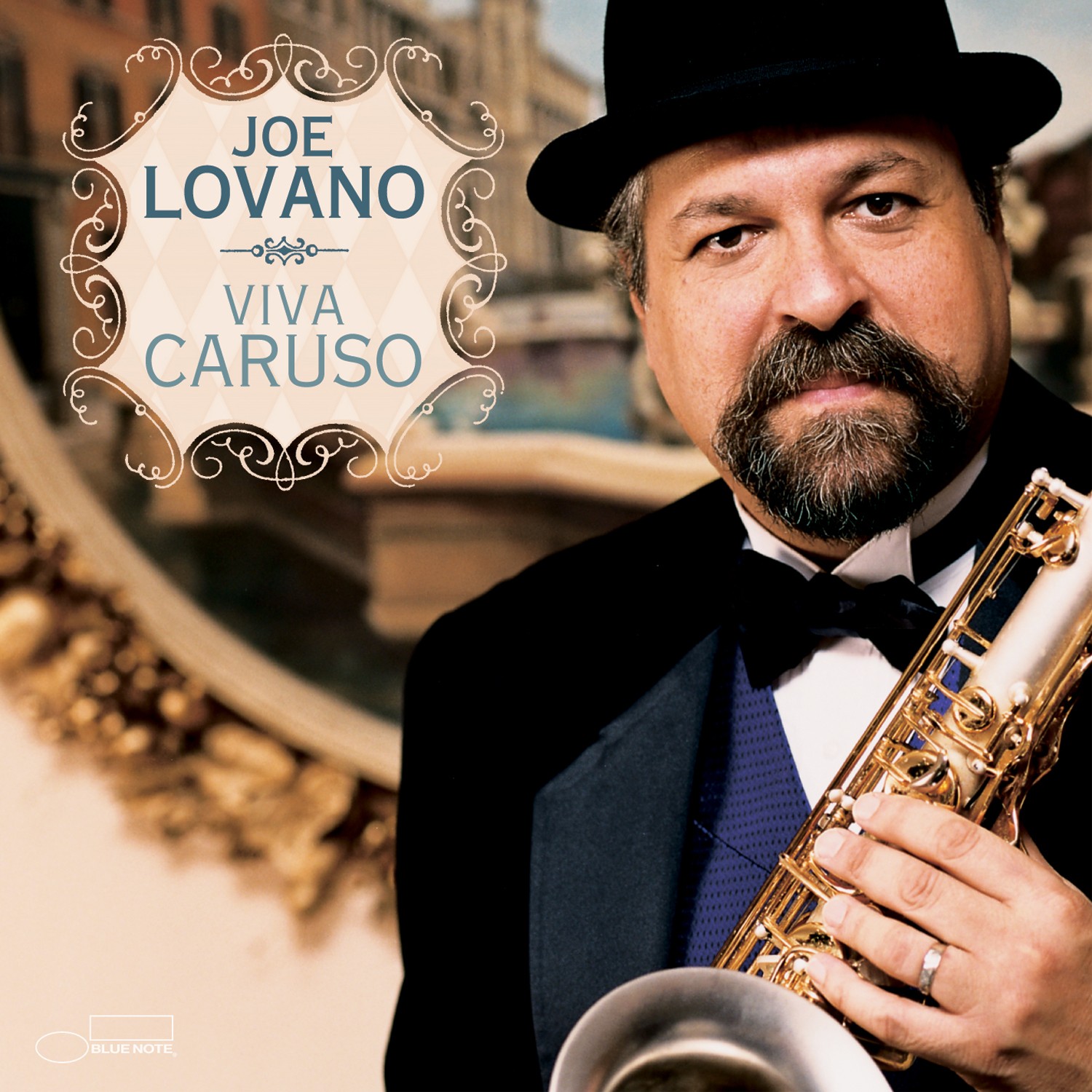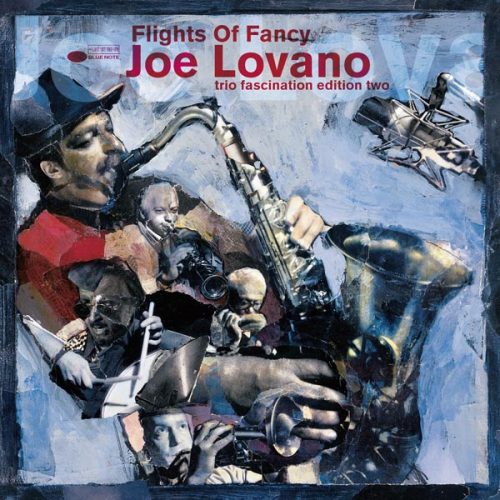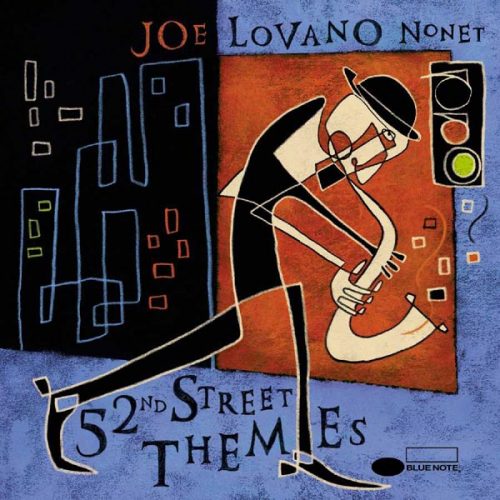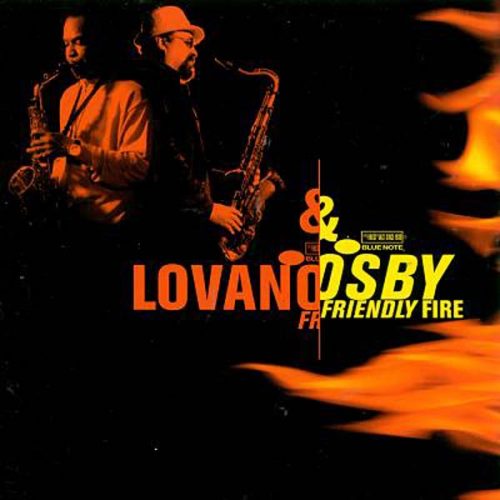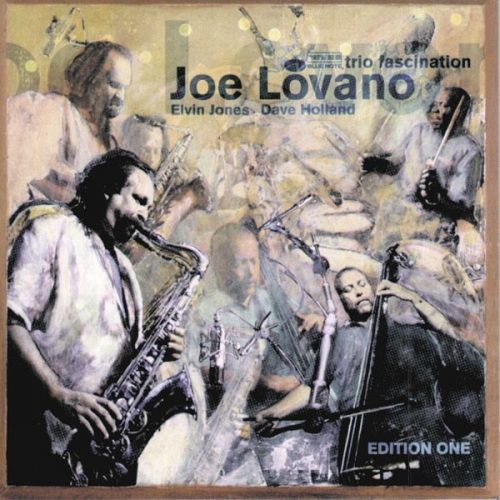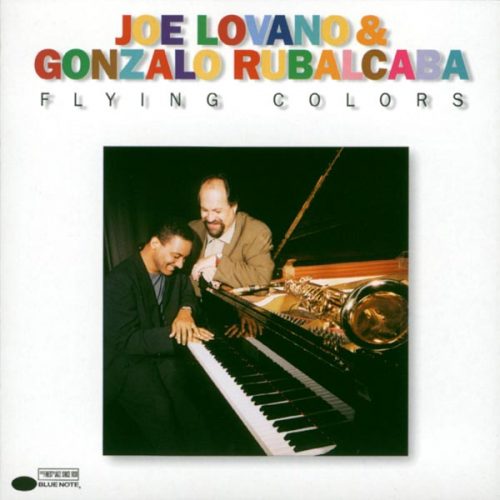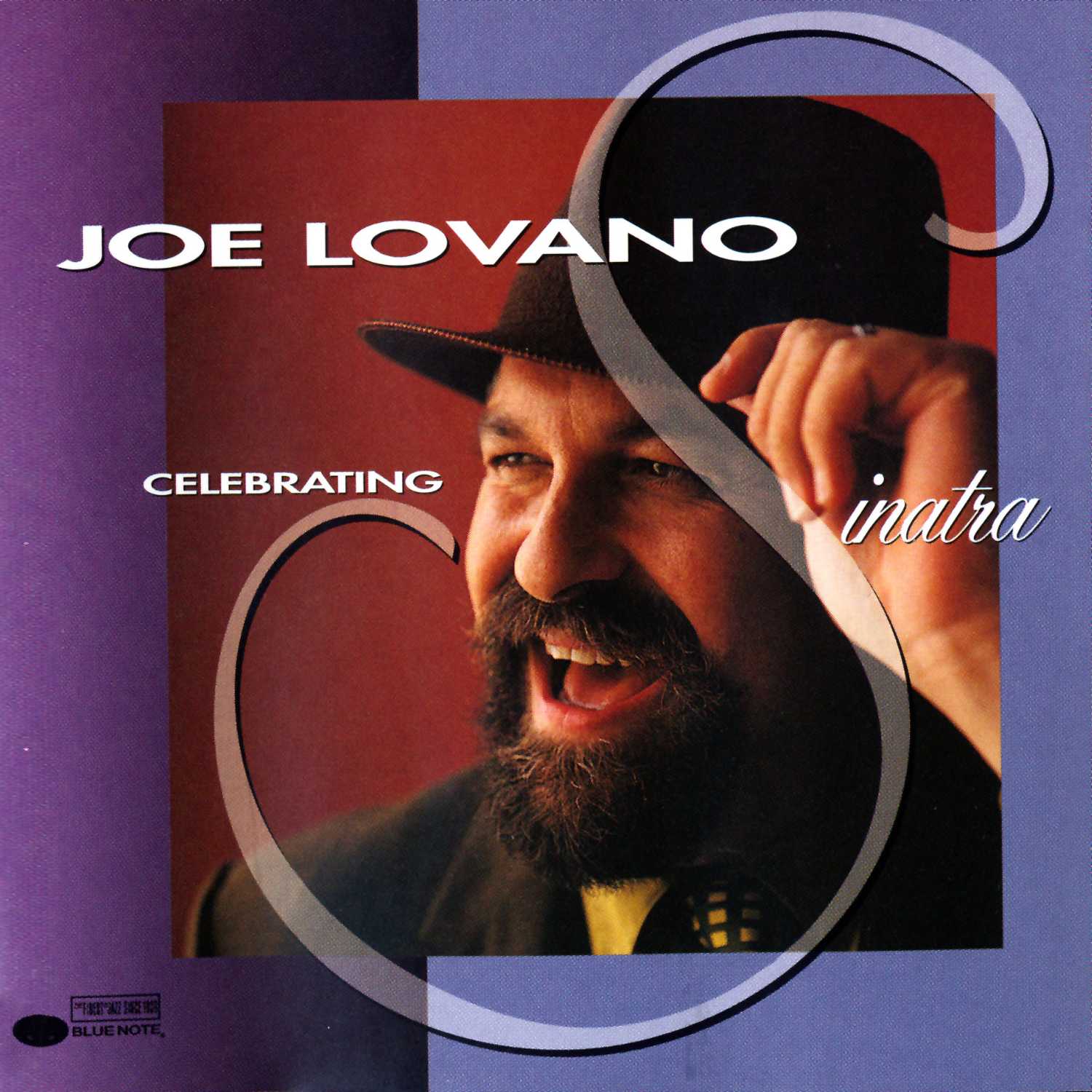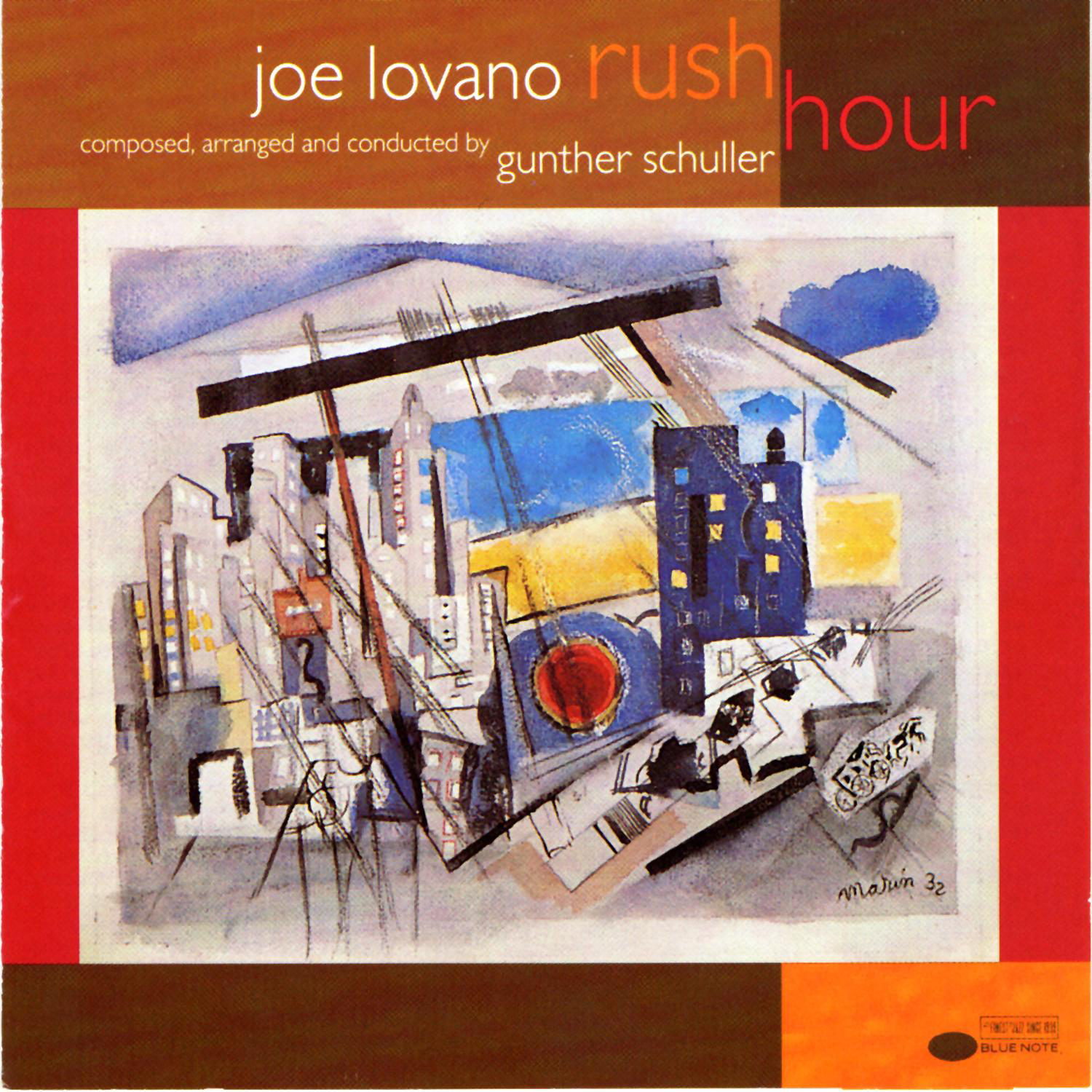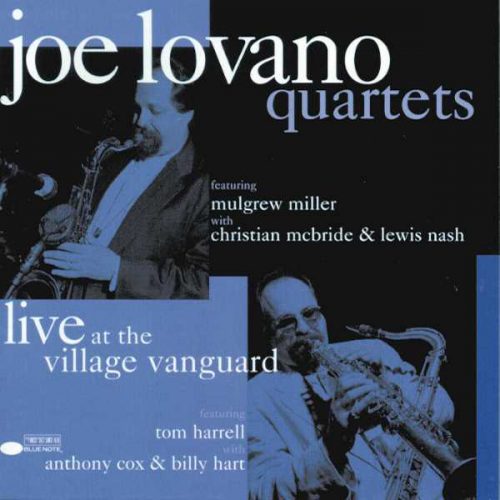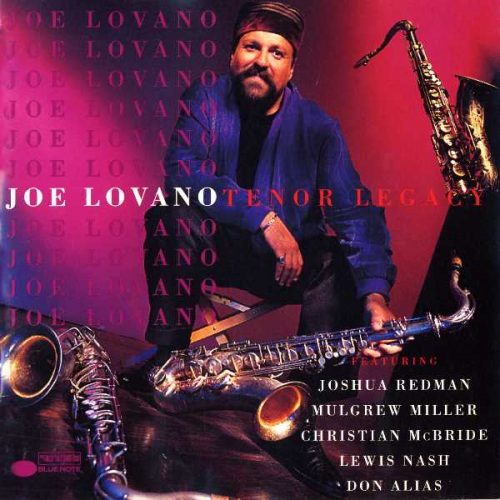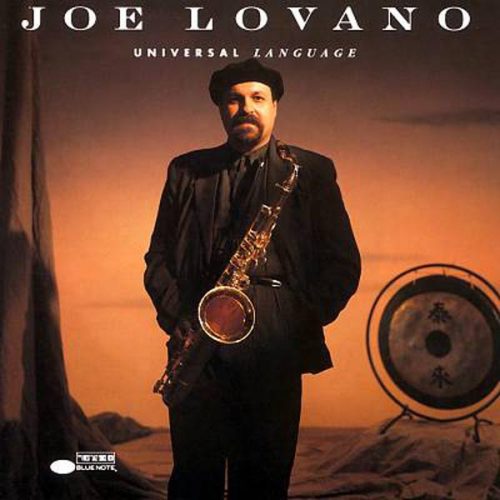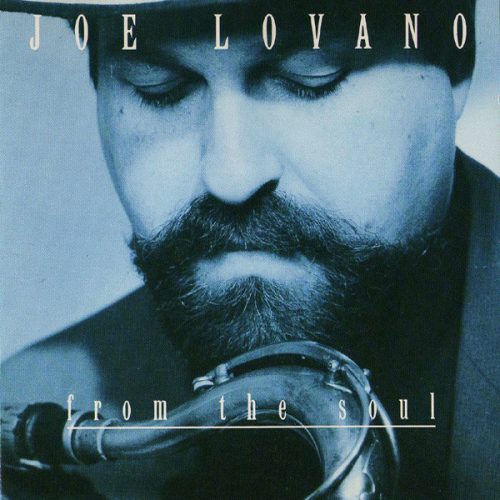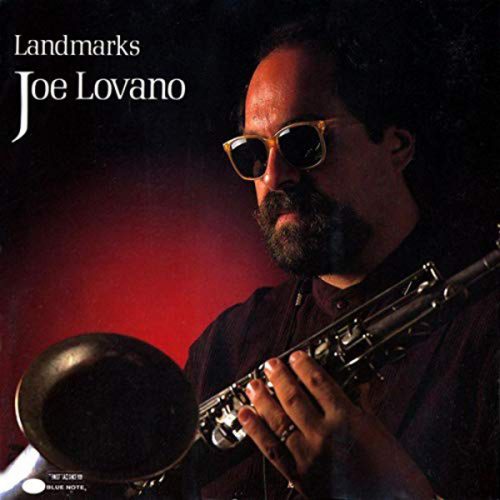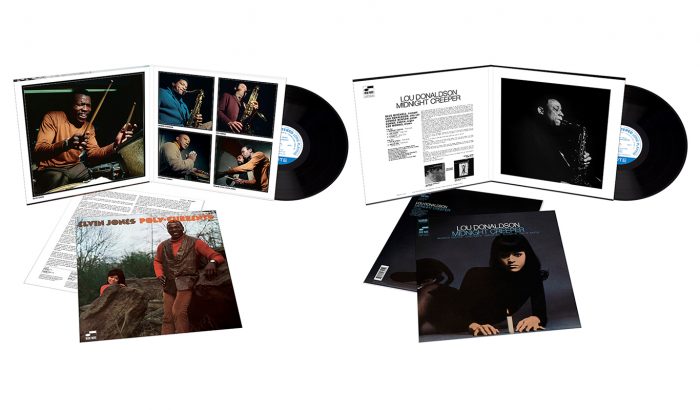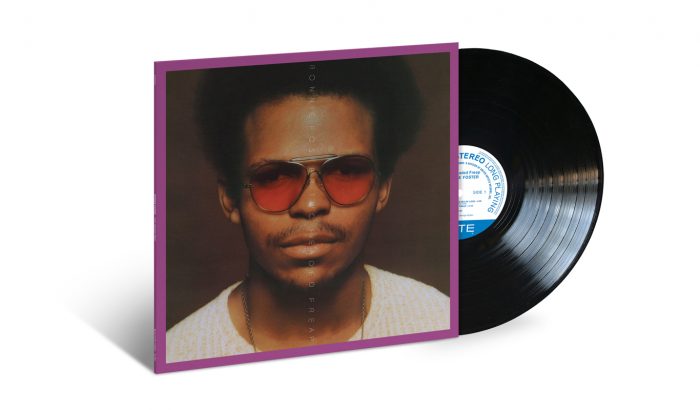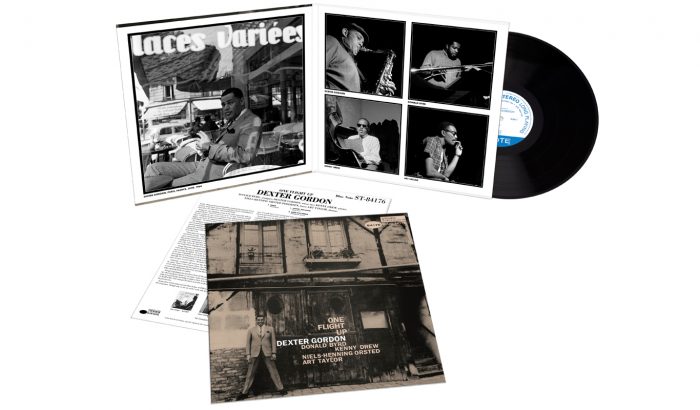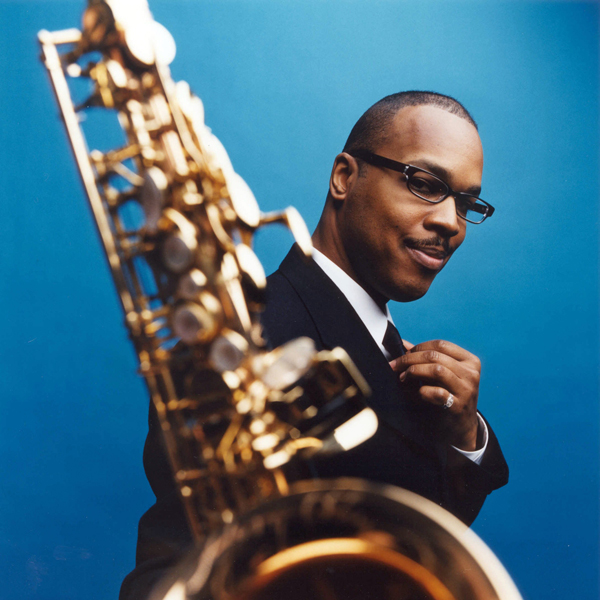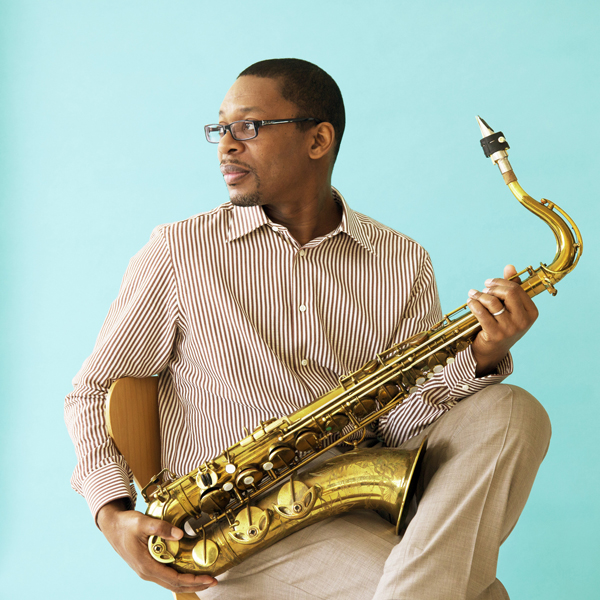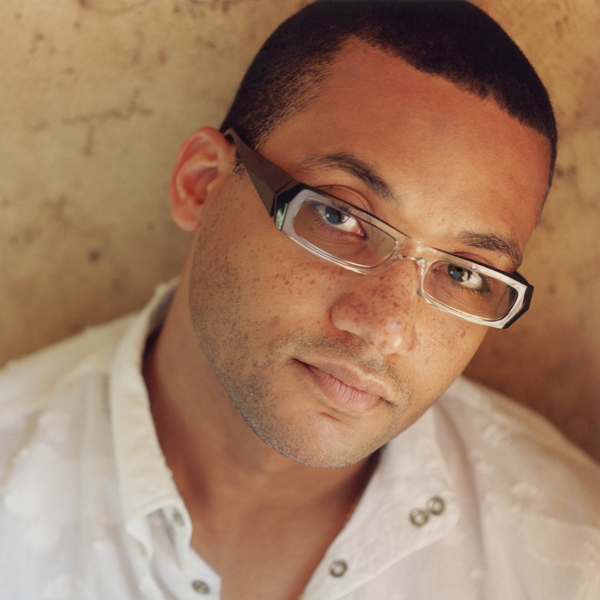Active during a period of jazz history when it seemed radical innovation was a thing of the past, Joe Lovano nevertheless coalesced various stylistic elements from disparate eras into a personal and forward-seeking style. While not an innovator in a macro sense, Lovano has unquestionably charted his own path. His playing contains not an ounce of glibness, but possesses in abundance the sense of spontaneity that has always characterized the music’s finest improvisers. Lovano doesn’t adopt influences — he absorbs them — so that when playing a standard, he exudes the same sense of abandon as when playing totally free (which, it should be pointed out, he does well, if infrequently). Lovano’s most significant achievement is his incorporation of free and modal expressive devices into traditional chord-change improvisation.
Lovano is the son of the respected Cleveland saxophonist Tony “Big T” Lovano. Joe started playing alto sax as a child, taught by his father, who also introduced him to jazz. In his youth, Joe would hear many of the prominent jazz artists who passed through town, including Dizzy Gillespie, James Moody, Sonny Stitt, and Rahsaan Roland Kirk. Lovano began playing in jam sessions around Cleveland while still in his teens. Although thoroughly steeped in bebop, he also developed an interest in the jazz experimentalism of the 1960s, listening to such musicians as John Coltrane, Jimmy Giuffre, and Ornette Coleman. Following high school, Lovano moved to Boston and attended the Berklee School of Music. Fellow students included such future collaborators as John Scofield, Bill Frisell, and Kenny Werner. While at Berklee, Lovano discovered modal harmony and opened up to the broad areas of tonal freedom that he found so attractive in the music of John Coltrane, among others.
After leaving Berklee, Lovano worked with organists Lonnie Smith (with whom he made his recording debut) and Jack McDuff. He toured with Woody Herman from 1976-1979. After leaving Herman, Lovano settled in New York City, where he quickly established himself. He joined drummer Mel Lewis’ orchestra in 1980; he played the band’s regular Monday night gigs at the Village Vanguard until 1992. He also recorded several times with the band. Lovano would also work with Elvin Jones, Carla Bley, Lee Konitz, Charlie Haden, and Bob Brookmeyer, among others. He joined drummer Paul Motian’s band in 1981 (which also included his Berklee classmate Frisell), and played with guitarist John Scofield’s quartet. Lovano began leading dates for Blue Note in the ’90s, and continued doing so throughout that decade and into the next, recording in a variety of contexts ranging from trios to larger woodwind and brass ensembles. Lovano’s wife, vocalist Judi Silvano, has appeared on a number of the saxophonist’s Blue Note releases, including 1992’s Universal Language and 1994’s Rush Hour. Lovano has received a number of Grammy nominations for his work on Blue Note. His 1996 album Quartets: Live at the Village Vanguard was named Jazz Album of the Year by readers of Down Beat magazine.
Since then, Lovano has split his time in the studio between releasing impressive original recordings and albums reinterpreting the work of artists who have influenced him, including vocalist Frank Sinatra on 1996’s Celebrating Sinatra (on which Judi Silvano also appeared), various bop-era stalwarts including pianist Tadd Dameron on 2000’s 52nd Street Themes, and opera tenor Enrico Caruso on 2001’s Viva Caruso. In 2004, the always unpredictable reedman released the ballads album I’m All for You, featuring pianist Hank Jones. Joyous Encounter followed in spring 2005 with Streams of Expression appearing on Blue Note a year later. Lovano once again paired up with Jones for the live duets album Kids: Duets Live at Dizzy’s Club Coca-Cola in 2007. A year later, Lovano appeared alongside the WDR Big Band and Rundfunk Orchestra on Symphonica. In 2009, he delivered the album Folk Art, featuring his Us Five quintet. Two years later, Lovano celebrated his 20-year association with Blue Note by releasing the Charlie “Yardbird” Parker tribute album Bird Songs. In 2012, Lovano returned with his third album featuring the Us Five quintet, Cross Culture. ~ Chris Kelsey


